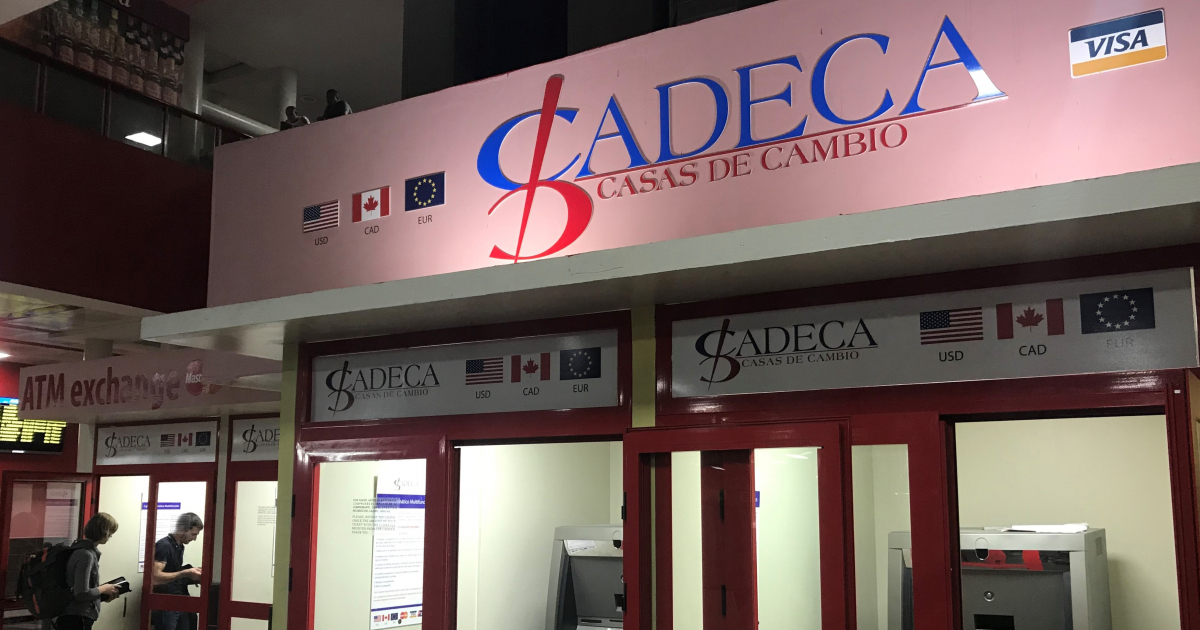
| 21/01/2021 – 3:36 PM (GMT-4)
The barter houses known as Cadeca in Cuba will only sell freely convertible currency (MLC) to nationals who are about to leave the country, the president of that entity, Joaquín Alonso Vázquez, informed.
In statements to Radio RebeldeThe official said Cadeca plans to maintain MLC’s buying and selling services, “but with the lack of tourism on the island,” the sales service will only be offered to those traveling outside the country.
“ With the drastic decrease in the number of tourists entering the country, we have drastically reduced the capacity to be able to sell MLC, so we only had to focus on selling to those passengers who go abroad and that need have to redeem, that is, to sell us the convertible pesos or pesos they acquired when they came in, ”he explained.
Alonso Vázquez also confirmed that passengers can only sell currencies up to a maximum of 300 CUC or 7,200 Cuban pesos, which translates into $ 288 at the official exchange rate, and other currencies at the rate the bank controls that day.
“While these six months of the Sorting task“You can arrive with 300 CUC, that we are going to buy the CUC and with the pesos we are going to give you the currency we have,” he noted.
“Sometimes there are customers who want dollars, but if we don’t have dollars at that time, we have to give them euros,” the manager clarified.
The measure is similar to the measure applied in Venezuela in 2015, when the government limited the amount of foreign exchange that could be bought at a preferential price to travel outside the country, in an effort to save some of the reduced income. in dollars after the fall. in oil prices.
In the case of Cuba, strict exchange controls are a response to the downturn in tourism and the crisis of the Cuban economic system, which is now trying to collect foreign exchange at all costs.
The measure could increase the cost of the dollar on the black market to 8 times its value, as happened in Caracas, or in the difficult years of the island’s special period.
Basically, the regime led by Miguel Díaz-Canel opened dollar-denominated stores where it sells basic necessities that are scarce in national currency stores, forcing Cubans who receive remittances to cash out their dollars.
Those who don’t have the benefit of getting dollars have seen their living conditions deteriorate.
The situation deteriorated due to the implementation of the so-called regulatory task on January 1, 2021, when the government higher wages on average 2.9 times, but increased the price of products and services between 5 and 13 times.
We need your help:
Just like you, thousands of Cubans they read and support CiberCuba independent journalism. Our editorial independence begins with our economic independence: no organization in any country funds CiberCuba. We create our own agenda, we publish our opinions and we give a voice to all Cubans, without external influences.
Until today, our newspaper has only been funded with advertisements and own funds, but that limits our options. We ask for your help for this. Your financial contribution will enable us to take more investigative action and increase the number of employees reporting from the island, while maintaining our editorial independence. Any contribution, large or small, will be very valuable for our future. Starting at just $ 5 and with just one minute of your time, you can partner with CiberCuba. Thank you.
Contribute now